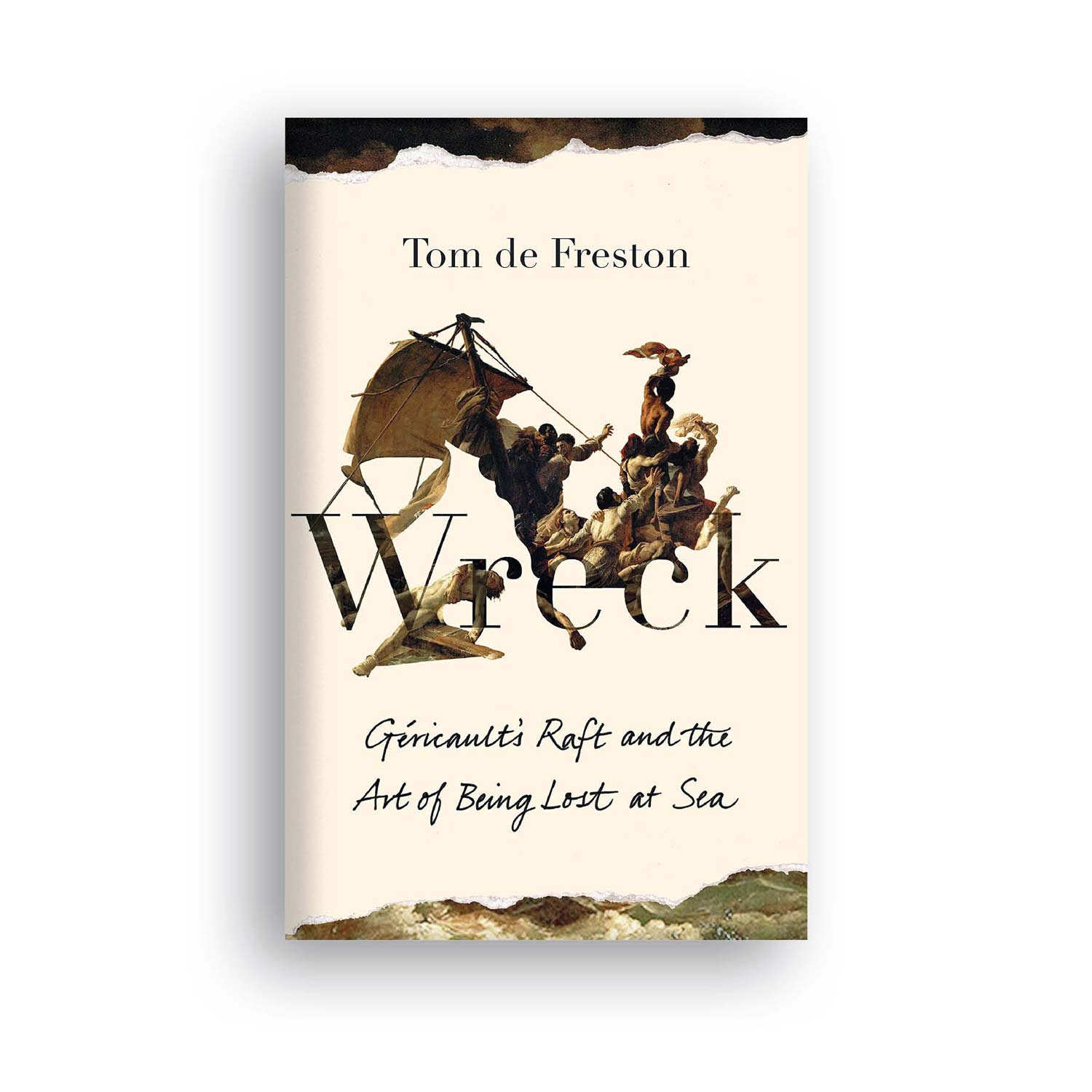
Wreck: Gericault’s Raft and the Art of Being Lost at Sea
By Tom de Freston (Granta). The acclaimed artist recounts his fascination with Gericault’s The Raft of the Medusa, translating the painting’s themes of suffering and trauma to both his own troubled family history and the struggles of his blind Syrian collaborator.
Artist Tom de Freston has long had an obsession with Gericault’s painting The Raft of the Medusa, and the troubling story behind its creation. The monumental canvas, which hangs in the Louvre, depicts a 19th century tragedy in which 150 people were drowned at sea on a raft lost in a stormy sea, when the ship Medusa was wrecked on shallow ground.
When de Freston began making an artwork with Ali, a Syrian writer blinded by a bombing, The Raft’s depiction of pain and suffering resonated powerfully with him, as did Gericault’s awful life story. It spoke not only to Ali’s story but to Tom’s family history of trauma and anguish, offering him a passage out of the dark waters in which he found himself.
In spellbinding, visceral prose, de Freston opens a window onto the magnetic frisson that runs between a past masterpiece and contemporary artistic endeavours. He asks powerful questions about how we might translate violence, fear and trauma into art, how we try to make sense of seemingly unthinkable acts, and the value in facing and depicting the darkest horrors.
I’ve never read a book like Wreck before. It pulled me in, engulfed me, cast me up, left me beached, left me wrecked. There are sudden vivid plunges into historical dreaming, dazzling close-readings of artworks, profoundly courageous passages of memoir, and as one proceeds through it one learns how to read it: by rhymes, echoes and flashes of lightning
Robert Macfarlane
Gericault”s Raft stands as a statement as much as painting, a history lesson, a nightmare, a gigantic perfidy, a visual shorthand for abuse and disaster rendered in exquisite oils… In pulses of literary reference and art history and Gericault””s own radical life story, de Freston evokes a provocative new voyage for the rotting raft – seen through his own visceral experience of the vast painting, and its uproarious terrors and visions, which hold a mortal but undying resonance for our own times… A stupendous work
Philip Hoare
To read Wreck is to observe a mind as it delves into the pentimenti of the past, moving through complexities of horror, art, solidarity, and trauma. Unforgettable
Doireann Ni Ghriofa
Not only an extraordinary exploration of how an artwork is created but a devastating portrayal of what it means to means to struggle, to be human, to find hope. A darting, incredibly ambitious book which brings together the head and the heart. I am still ringing with the experience of reading it
Daisy Johnson, author of Sisters
Wreck is a stunning piece of writing – powerful, moving, and raw. It is electrifying
Louise O’Neill
A beguiling hybrid of memoir, art history and fiction… imaginative… lyrical
TLS
